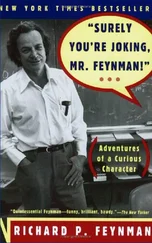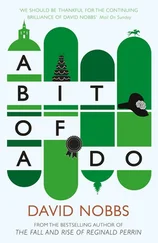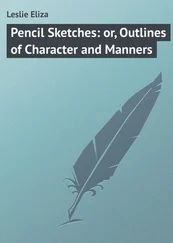
He asked about Aunty all the time, about my mother and father, even Uncle. He was fascinated by them all, he wanted to get to the heart of them. He listened, rapt at my reports of the dinner table, at my memories of childhood, he laughed at their ideas, nodded lovingly at my life. He said everyone was afraid, because they couldn’t see any more. But you don’t owe them anything. Why do you cling so hard?

Then one day, instead of driving, he asks if I’d like to see his apartment. He says the renovations are almost done, that it only needs painting and he can unpack and settle in. Would I like to see it? I say I would.
His apartment is like no place I’ve seen. Cut off from Delhi, cut off from the earth, turned into a kind of maze, then sealed. Terracotta and black granite floors. There are empty spaces cut into the inside walls, they look out into the central hallway so fragments of every room can be viewed, so nothing is private inside.
He says he designed it himself. As if it were a bunker at the end of the world.
He walks me around: bedroom, hallway, kitchen, living room, balcony, one looking into the next. It’s only in the bathroom at the rear where the original home remains untouched, old, charming, possessed by the clank of pipes, with the big pale light that streams through the frosted glass. In here you can feel the heat and light of Delhi.
We sit out on his balcony for an hour in the morning sun, among the boxes of his life that are waiting to be unpacked. The balcony is surrounded by a high bamboo fence with creeping plants all around, so you can only see the sky. Without friends, without family, without servants. He says you can walk around naked if you want, no one would ever know.

A few days later we’re driving from CP around India Gate. I am holding an empty Coke can between my legs. He looks at it and says, Can I get that for you? Can I throw it away? And I say, No, it’s OK. I like something between my legs.
Pointedly. A calculated phrase. He looks at me.
This is all it takes.

All the marriage meetings I ever had ended in the same rejection. What they never understood was that I had rejected them long before they saw my face.
The first boy was from a middle-class family much like my own. He had a steady job as an engineer. Aspirational, shining with belief, with the ambition to go to the States himself. He had learned his role by rote. We met in the Defence Colony Barista in the March of my first Delhi year. I had no car then. Aunty escorted me, waiting in the back seat like a pimp while her driver ate chaat in the market outside. She made me wear a kurta and jeans, to be both modern and traditional at once.
He was already waiting for me inside. He had his laptop open at the low table. I recognized him from the photo in the résumé that had been sent, that had just been thrust beneath my nose, and he looked up and recognized me in turn. Aunty had sent a photograph of me, taken at a studio set up at one of the wedding functions we’d attended. In a sari, a little tipsy, in the glare of the artificial light, with a posed, enforced smile, the photo stripped me of my life.
I remember very clearly the pen he kept in the top pocket of his shirt, also the new glasses he wore. They were designer, he proudly said. But his face I don’t recall, his was like the million others I saw. He was simply his glasses and his pen and the starched white shirt. He talked to me from the start about the importance of family, about his mother, what his mother thought about things. My mother says, he said many times, and he listed what they looked for in a girl. I sat across from him silent, sullen, angry with myself because I had agreed to be there at all. He said he wanted a girl who was simple, respectful, but educated of course, able to have her own opinions. But she must be respectful to his mother above all else. They must get on or there’d be no point. I felt quite sick at the mechanics of it. But Aunty had told me again and again, Marriage is not about love, when will you understand this? Love is a luxury that doesn’t exist in the real world.
I asked him drily if it wouldn’t be better for me to meet his mother alone. Without a flicker of understanding he said no.
When it came it was one of those polite rejections, where his mother tells Aunty that he’s found someone else absolutely perfect that very same day, what timing, what coincidence. What to do? Aunty smiles. What to do. But she’s kicking herself. What did you say? You don’t know how to talk to people, to show yourself in the best light, you don’t stand up straight, you don’t smile.
The next boy was from a south Delhi business family, the only son and heir, twenty-six years old. We met in another coffee shop, all around us you could spy these marriage meetings taking place. This boy was more arrogant, wealthy, dressed in a designer shirt, he wore his fat with pride, was well groomed, his pouting lips protruding from his face, his eyes heavy lidded, stirring his tea very slow. Well-manicured fingers perched on the table like exotic birds. There was something in his manner that spoke of cruelty to me. He talked at length, about his Hyundai, his plan to replace it with a Mercedes before the year was out. And all the while he eyed me with a measure of disdain. Why he ever agreed to meet me in the first place I’ll never know. But Aunty was punching above her weight, saying, Nothing succeeds like success.

We make love on the first of May, Labour Day. A day for the workers.
His apartment is being painted, it’s full of them but he sends them home, tries to explain the concept of it as he does, this day to honour the working people of the world, but it’s lost on them completely, everything about it is lost. They down tools and go anyway.
He says, Go home, get drunk, make love to your wives. They look at me as they go.
He’d waited until they arrived to tell them they were free, until they’d begun to work, to make it worthwhile, to see their reaction. Because theatre was important. But we’d planned this. I’d told him I wanted to know what it was like, I was ready, I wanted it to be him.

We’ve been drinking since the workers left. Drinking to remove the awkwardness in me.
Most of the other rooms have been finished, already painted in purple, black, red or ink blue. But in the bedroom the walls are still white.
Everything smells of paint in here. The smell catches in my nostrils, the back of my throat. The AC is on high. Outside it’s approaching forty degrees. Beating the earth.
In the kitchen the fridge is well stocked: water, juice, soft drinks, a crate of beer. Several bottles of good whisky in the cupboard. There are cold cuts in the fridge, from the charcuterie in Vasant Vihar, bresaola, serrano, chorizo. He teaches me how to say these words, how to say “charcuterie,” from the French, obsolete: char for flesh, cuite for cooked, cooked flesh, flesh that is cooked, which we eat.
He pours a glass of whisky for me, Caol Ila. Teaches me to say that too, tapping the tip of the tongue to the roof of the mouth, mixing it with some drops of clean water, saying, This is the way. In the dhabas the whisky’s dirty, you drink it with Coke, with soda, but not this. He rolls it around the glass. It coats the side and falls, like amber for fossils. Smell it, he says, close your eyes. And he raises the glass to my nose. It smells of earth and sea and salt, Bombay without the heat, in the glint of stars and mud and leaves, in woodsmoke sluiced through rain. Now taste it. I take the glass from his hands, bring it up to my lips. It burns as it touches them. He kisses it back from me and delicately, with his hands on my hips, presses himself against me. I feel the hardness of him. I bring the glass up, fill my mouth, kiss him back again. He looks up, almost surprised, like a boy.
Читать дальше













